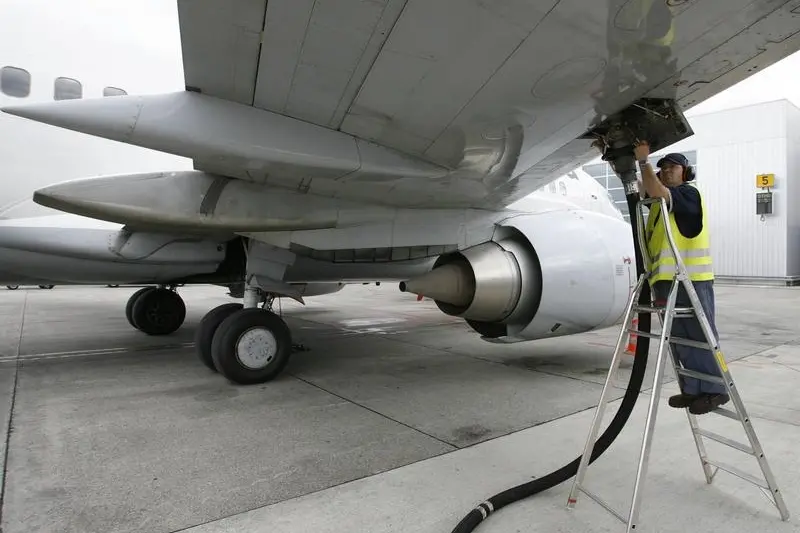PHOTO
DUBAI: Khaled Al-Eisawi, Area Manager, Gulf and Near East, IATA, stated that the current production of sustainable aviation fuel represents less than 1% of the sector's demand, despite the production and usage accelerating threefold in 2023 compared to the previous year. This has led to significant investments in the field, with airlines committing to purchasing available quantities in the market.
In a statement to the Emirates News Agency (WAM) on the sidelines of the ongoing third International Civil Aviation Organisation (ICAO) Conference on Aviation and Alternative Fuels (CAAF/3) in Dubai, Al-Eisawi emphasised that the growth of sustainable aviation fuel (SAF) production requires government support and promotes investment in this vital sector, noting that the currently available SAF levels do not support the required trends, as production is unable to meet demand, and prices are high.
Al-Eisawi highlighted the significance of the third ICAO conference, focusing on sustainable aviation fuel, which is a fundamental pillar in achieving the aviation sector's goal of zero emissions by 2050. He pointed out that the path to zero emissions depends on alternative fuels by more than 65%.
Fly Net Zero is the commitment of airlines to achieve net zero carbon by 2050. At the 77th IATA Annual General Meeting in Boston in October 2021, a resolution was passed by IATA member airlines, committing them to achieving net-zero carbon emissions from their operations by 2050. This pledge brings air transport in line with the objectives of the Paris Agreement to limit global warming to well below 2°C.
"The global travel has recovered more than 97% of pre-pandemic levels, exceeding 100% in the Middle East region,"the IATA official noted. Some countries in the region have surpassed 2019 levels, expecting the growth trend in travel to continue next year. Regarding the UAE, he pointed out that it has tremendously exceeded pre-pandemic levels.





















